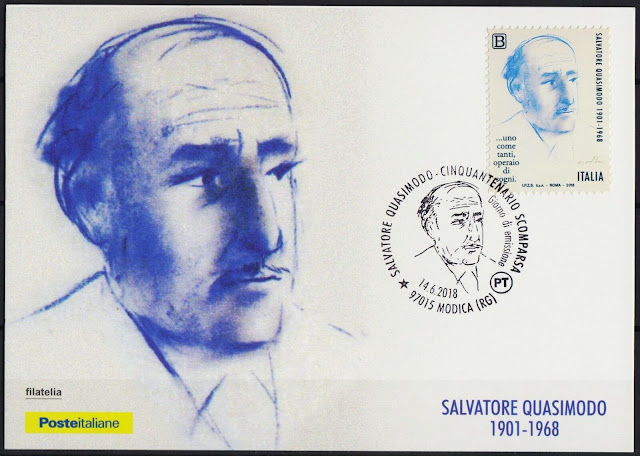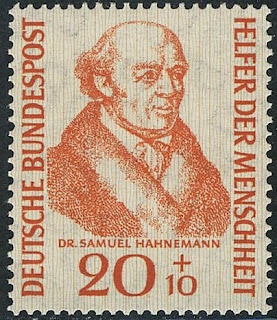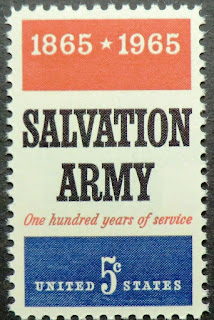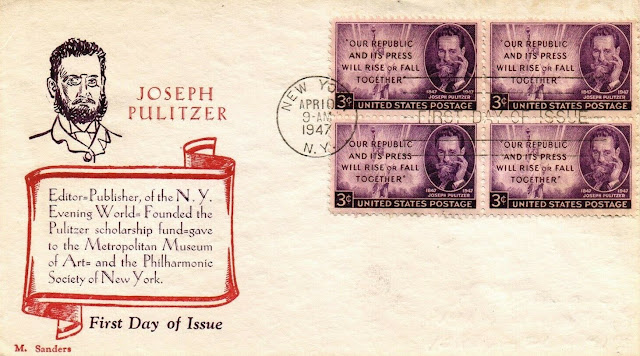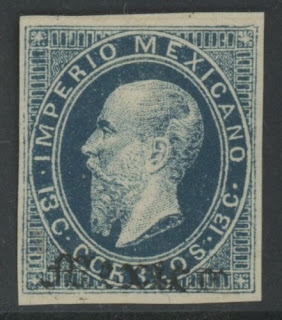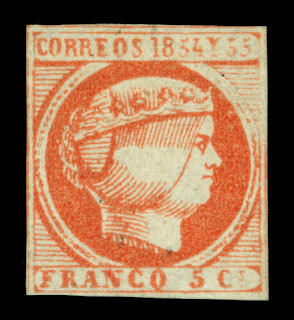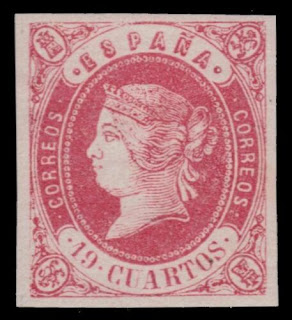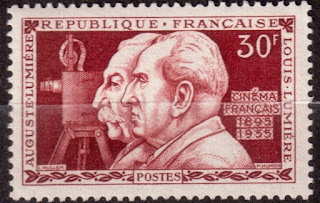Here are some events that happened on June 14th. It could be an event or a person that died or was born on that day
1868 Born: Karl Landsteiner, Austrian biologist and physician, Nobel Prize laureate (d. 1943)
Karl Landsteiner (14 June 1868 – 26 June 1943) was an Austrian biologist, physician, and immunologist. He distinguished the main blood groups in 1900, having developed the modern system of classification of blood groups from his identification of the presence of agglutinins in the blood, and identified, with Alexander S. Wiener, the Rhesus factor, in 1937, thus enabling physicians to transfuse blood without endangering the patient's life. With Constantin Levaditi and Erwin Popper, he discovered the polio virus in 1909. He received the Aronson Prize in 1926. In 1930, he received the Nobel Prize in Physiology or Medicine. He was posthumously awarded the Lasker Award in 1946, and has been described as the father of transfusion medicine
In 1900 Karl Landsteiner found out that the blood of two people under contact agglutinates, and in 1901 he found that this effect was due to contact of blood with blood serum. As a result, he succeeded in identifying the three blood groups A, B and O, which he labelled C, of human blood. Landsteiner also found out that blood transfusion between persons with the same blood group did not lead to the destruction of blood cells, whereas this occurred between persons of different blood groups. Based on his findings, the first successful blood transfusion was performed by Reuben Ottenberg at Mount Sinai Hospital in New York in 1907.
Today it is well known that persons with blood group AB can accept donations of the other blood groups, and that persons with blood group O-negative can donate to all other groups. Individuals with blood group AB are referred to as universal recipients and those with blood group O-negative are known as universal donors. These donor-recipient relationships arise due to the fact that type O-negative blood possesses neither antigens of blood group A nor of blood group B. Therefore, the immune systems of persons with blood group A, B or AB do not refuse the donation. Further, because persons with blood group AB do not form antibodies against either the antigens of blood group A or B, they can accept blood from persons with these blood groups, besides from persons with blood group O-negative.
In today's blood transfusions only concentrates of red blood cells without serum are transmitted, which is of great importance in surgical practice. In 1930 Landsteiner was awarded the Nobel Prize in Physiology or Medicine in recognition of these achievements. For his pioneering work, he is recognized as the father of transfusion medicine.
1920 Died: Max Weber, German sociologist and economist (b. 1864)
Maximilian Karl Emil Weber (21 April 1864 – 14 June 1920) was a German sociologist, philosopher, jurist, and political economist, who is regarded today as one of the most important theorists on the development of modern Western society. As his ideas would profoundly influence social theory and social research, Weber is often cited as among the four founders of sociology, alongside W. E. B. Du Bois, Émile Durkheim, and Karl Marx.
Unlike Durkheim, Weber did not believe in monocausal explanations, proposing instead that for any outcome there can be multiple causes. As such, he would be a key proponent of methodological anti-positivism, arguing for the study of social action through interpretive (rather than purely empiricist) methods, based on understanding the purpose and meanings that individuals attach to their own actions. Weber's main intellectual concern was in understanding the processes of rationalisation, secularisation, and "disenchantment", which he took to be the result of a new way of thinking about the world, associating such processes with the rise of capitalism and modernity.
Weber is best known for his thesis of combining economic sociology and the sociology of religion, emphasising the importance of cultural influences embedded in religion as a means for understanding the genesis of capitalism (contrasting Marx's historical materialism). Weber would first elaborate his theory in his seminal work, The Protestant Ethic and the Spirit of Capitalism (1905), in which he attributes ascetic Protestantism as one of the major "elective affinities" involved in the rise of market-driven capitalism and the rational-legal nation-state in the Western world. Arguing the boosting of capitalism as a basic tenet of Protestantism, Weber would suggest that the spirit of capitalism is inherent to Protestant religious values. Protestant Ethic would form the earliest part in Weber's broader investigations into world religion, as he would go on to examine the religions of China and India, as well as ancient Judaism, with particular regard to their differing economic consequences and conditions of social stratification.
Through another major work, "Politics as a Vocation", Weber would define "the state" as an entity that successfully claims a "monopoly of the legitimate use of physical force within a given territory." He would also be the first to categorise social authority into distinct forms: charismatic, traditional, and rational-legal. Among these categories, Weber's analysis of bureaucracy would emphasize that modern state institutions are increasingly based on the latter (rational-legal authority).
Weber also made a variety of other contributions in economic history, theory, and methodology. His analysis of modernity and rationalisation would significantly influence the critical theory associated with the Frankfurt School. After the First World War, he was among the founders of the liberal German Democratic Party. He also ran unsuccessfully for a seat in parliament and served as advisor to the committee that drafted the ill-fated democratic Weimar Constitution of 1919. After contracting Spanish flu, he died of pneumonia in 1920, aged 56.
1928 Born: Ernesto "Che" Guevara, Argentinian-Cuban physician, author, guerrilla leader and politician (d. 1967)
Ernesto "Che" Guevara (14 June 1928 – 9 October 1967) was an Argentine Marxist revolutionary, physician, author, guerrilla leader, diplomat, and military theorist. A major figure of the Cuban Revolution, his stylized visage has become a ubiquitous countercultural symbol of rebellion and global insignia in popular culture.
As a young medical student, Guevara traveled throughout South America and was radicalized by the poverty, hunger, and disease he witnessed. His burgeoning desire to help overturn what he saw as the capitalist exploitation of Latin America by the United States prompted his involvement in Guatemala's social reforms under President Jacobo Árbenz, whose eventual CIA-assisted overthrow at the behest of the United Fruit Company solidified Guevara's political ideology. Later in Mexico City, Guevara met Raúl and Fidel Castro, joined their 26th of July Movement, and sailed to Cuba aboard the yacht Granma with the intention of overthrowing U.S.-backed Cuban dictator Fulgencio Batista. Guevara soon rose to prominence among the insurgents, was promoted to second in command and played a pivotal role in the victorious two-year guerrilla campaign that deposed the Batista regime.
Following the Cuban Revolution, Guevara performed a number of key roles in the new government. These included reviewing the appeals and firing squads for those convicted as war criminals during the revolutionary tribunals, instituting agrarian land reform as minister of industries, helping spearhead a successful nationwide literacy campaign, serving as both national bank president and instructional director for Cuba's armed forces, and traversing the globe as a diplomat on behalf of Cuban socialism. Such positions also allowed him to play a central role in training the militia forces who repelled the Bay of Pigs Invasion, and bringing Soviet nuclear-armed ballistic missiles to Cuba, which preceded the 1962 Cuban Missile Crisis. Additionally, Guevara was a prolific writer and diarist, composing a seminal manual on guerrilla warfare, along with a best-selling memoir about his youthful continental motorcycle journey. His experiences and studying of Marxism–Leninism led him to posit that the Third World's underdevelopment and dependence was an intrinsic result of imperialism, neocolonialism and monopoly capitalism, with the only remedy being proletarian internationalism and world revolution. Guevara left Cuba in 1965 to foment revolution abroad, first unsuccessfully in Congo-Kinshasa and later in Bolivia, where he was captured by CIA-assisted Bolivian forces and summarily executed.
Guevara remains both a revered and reviled historical figure, polarized in the collective imagination in a multitude of biographies, memoirs, essays, documentaries, songs, and films. As a result of his perceived martyrdom, poetic invocations for class struggle, and desire to create the consciousness of a "new man" driven by moral rather than material incentives, Guevara has evolved into a quintessential icon of various leftist movements. His critics note that he killed political opponents. Time magazine named him one of the 100 most influential people of the 20th century, while an Alberto Korda photograph of him, titled Guerrillero Heroico (shown), was cited by the Maryland Institute College of Art as "the most famous photograph in the world".
1968 Died: Salvatore Quasimodo, Italian novelist and poet, Nobel Prize laureate (b. 1901)
Salvatore Quasimodo (August 20, 1901 – June 14, 1968) was an Italian poet and translator.
In 1959 he won the Nobel Prize in Literature "for his lyrical poetry, which with classical fire expresses the tragic experience of life in our own times". Along with Giuseppe Ungaretti and Eugenio Montale, he is one of the foremost Italian poets of the 20th century.
Traditional literary critique divides Quasimodo's work into two major periods: the hermetic period until World War II and the post-hermetic era until his death. Although these periods are distinct, they are to be seen as a single poetical quest. This quest or exploration for a unique language took him through various stages and various modalities of expression.
As an intelligent and clever poet, Quasimodo used a hermetical, "closed" language to sketch recurring motifs like Sicily, religion and death. Subsequently, the translation of authors from Roman and Greek Antiquity enabled him to extend his linguistic toolkit. The disgust and sense of absurdity of World War II also had its impact on the poet's language. This bitterness, however, faded in his late writings, and was replaced by the mature voice of an old poet reflecting upon his world.
Italian stamps depicting Salvatore Quasimodo





